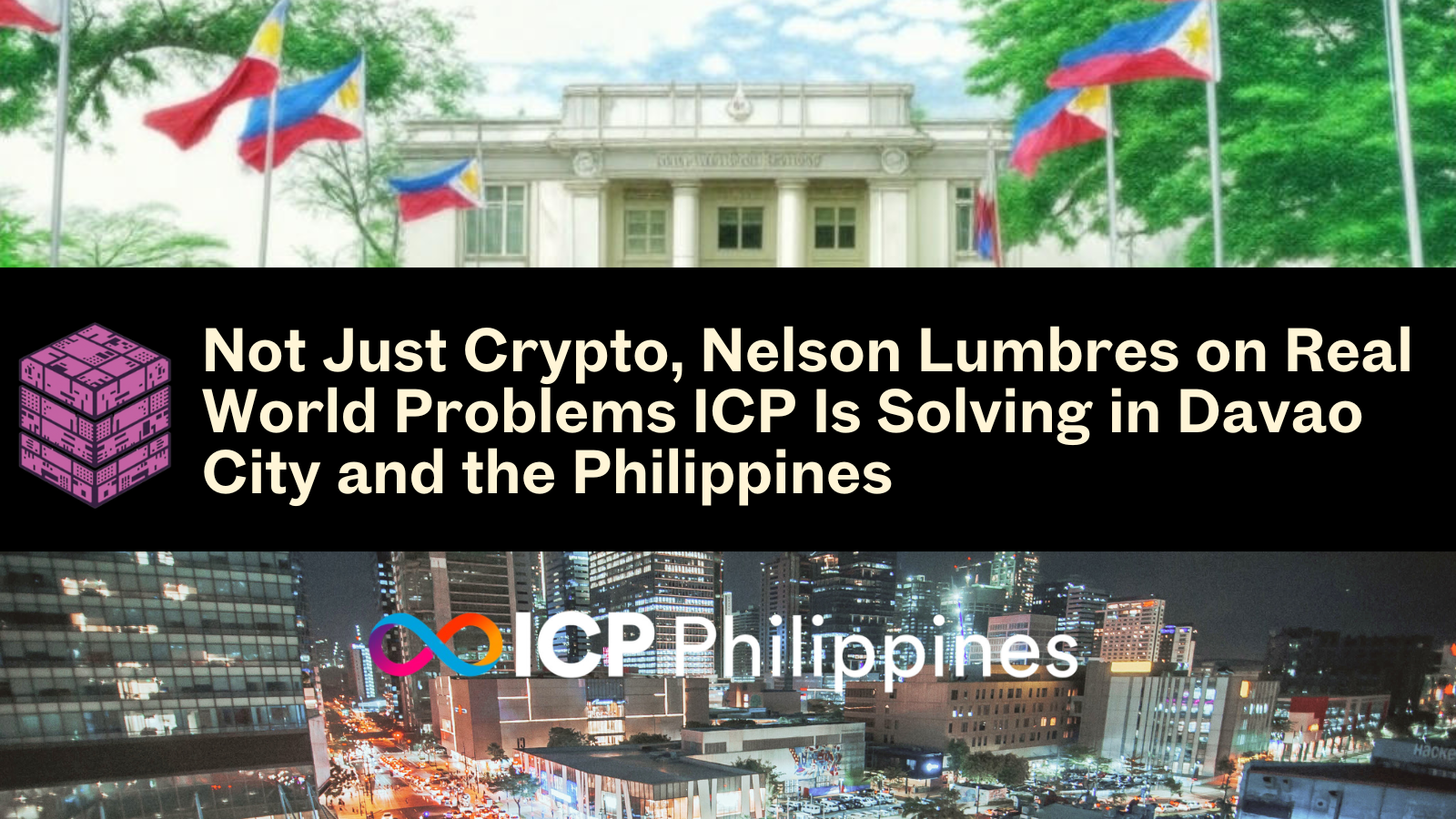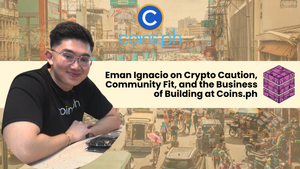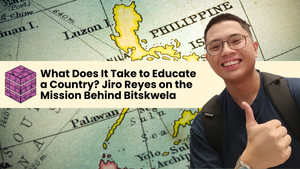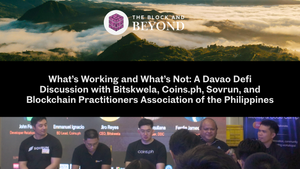ICP Philippines is not building speculative coins or viral JPEGs. It is solving cybersecurity threats, streamlining public aid, and empowering developers. At the heart of it is Nelson Lumbres, who believes blockchain is not the future, but the present.
The journey of the Internet Computer Protocol (ICP) in the Philippines began with developer education. Long before it reached city halls or training centers, Nelson Lumbres and his team at ICP Philippines were holding hackathons, meetups, and community workshops across the country.
Their work eventually led them to Davao. There, they encountered a city government struggling with persistent cyberattacks, fragmented IT systems, and the daunting task of digital transformation. But unlike other partnerships that begin with national mandates, this one was different.
The initiative was explored in depth on Coach Miranda Miner’s podcast, where three trailblazers shared their unique roles in the project.
- Rod Albores, a local developer and founder of ReverionTech, is spearheading blockchain training for both students and LGU teams.
- Nelson Lumbres, co-founder of ICP Philippines, provides the blockchain infrastructure and vision for full-stack decentralization.
- Jun Barber, representing the Davao LGU’s IT division, is leading the city’s digital transformation from within the government.
“We think smart contracts will basically replace software. Right now, we're calling it blockchain as a service.”
From Software as a Service to Blockchain as a Service
Lumbres explained that the goal of ICP is not just to compete with other blockchains, but to reimagine what software delivery looks like. While most blockchains only handle back-end transactions or file storage, ICP offers full-stack decentralization.
“Right here, for ICP, we can talk about, we call it 100% on-chain. Meaning to say, from the exacting front end and back end, everything is living on the blockchain.”
This makes it ideal for use cases like decentralized identity, tamper-proof record keeping, and smart contract deployment for public services. Instead of relying on Amazon Web Services or Google Cloud, the entire application can live on the blockchain—front end, back end, and data.
When Davao collaborated with local developer Rod Albores of ReverionTech, who had already been training developers in the city, ICP stepped in to provide deep technical training. The city’s IT team received a five-day hands-on course that walked them through deploying on ICP’s canister-based architecture.
Why Cities Need to Own Their Infrastructure
Lumbres emphasized that the long-term value of blockchain for local governments lies in ownership and independence. Instead of outsourcing infrastructure to large vendors, cities can build their own secure and scalable systems on open source technology.
In Davao, this means systems like the Unified Citizen ID can eventually include blockchain-based auditing and identity verification. It also means that other departments, from finance to health, can explore integrations without relying on centralized servers or high-cost third-party platforms.
Lumbres sees this as part of a broader shift. As more cities come online and recognize the need for secure digital infrastructure, he believes the future will belong to those who start building now.
The Power of Local Partnerships
“Our strategy has been always a funneled-down approach. We really started just creating an event on grounds of Davao, getting to know the community.”
What made the Davao collaboration work was not just the technology, but the people. ReverionTech was already embedded in the local scene. The LGU had a clear need. And ICP had a mission that aligned with both.
Lumbres praised this alignment and sees it as a repeatable model. With the support of the DFINITY Foundation, ICP’s global backer, and local actors like Albores and Davao LGU, the project is set to scale from pilot to production.
This isn’t about token speculation. It is about trust, transparency, and tamper-proof digital services. For Lumbres, that is what real blockchain impact looks like.
“Anybody can build. It's a level playing field. It's borderless when we talk about crypto and blockchain.”
And with leaders like him laying down the infrastructure, the rest of the Philippines may not be far behind.











